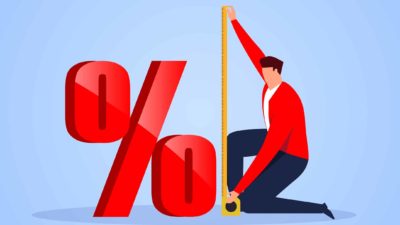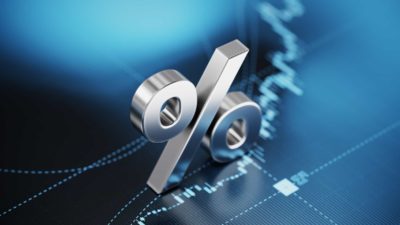Today, we got the latest economic report from the Australian Bureau of Statistics (ABS). And it wasn't pleasant reading for anyone who wants to see the Australian economy (specifically its gross domestic product (GDP) running on all cylinders at full steam ahead.
The ABS informed us, in contrast, that the Australian economy grew by a seasonally adjusted 0.2% over the three months to 31 December 2023, putting its annualised growth at 1.5% for the 12 months to 31 December. That's the slowest annual growth rate since the pandemic began.
Even more worryingly, the economy actually contracted before we account for the benefits of population growth. The ABS stated that "strong population growth saw GDP per capita fall 1.0 per cent over the year".
The ABS' data also showed that household savings increased, while household consumption rose "a meagre 0.1%". Imports also fell over the quarter.
In some good news, labour productivity was up 0.5%, which helped wages rise 0.9% for the quarter and 4.2% year on year. That's the highest annual wage growth recorded since 2009.
Business investment also ticked up by 0.7% during the quarter, marking the 14th quarterly rise in a row.
So why is the share market up on this GDP news?
Before this report became public, the S&P/ASX 200 Index (ASX: XJO) was having an awful day. But the release of this data seemed to put a spring in investors' steps, with the index now healthily in the green with a 0.08% rise to over 7,730 points at present.
Since 12:30 pm, the ASX 200 has added 0.4%.
So investors appear to be celebrating this news. Why? Well, the only possible explanation is the impact this data might have on the Reserve Bank of Australia (RBA)'s next interest rate move.
As many investors would know, interest rates have a direct and meaningful impact on the share market. Higher rates, as Warren Buffett once put it, tend to act like gravity on asset classes characterised as 'risky'. That, of course, includes shares. Because higher rates increase the appeal of 'safer' assets like cash and government bonds, shares tend to suffer when rates go up.
But the opposite is also true. Lower rates increase the attractiveness of shares as the yield available from cash investments and government bonds is degraded.
With economic growth slowing, the RBA might be keener to start cutting rates sooner rather than later.
The ASX has arguably been reaching new all-time highs in recent weeks partly for this very reason. Investors and commentators have been growing bolder with their predictions for rate cuts in 2024 for a while now, and these latest GDP figures will do nothing to dampen that speculation.
Judging by today's post-announcement market recovery, it may be increasing it.
Let's see what happens next.









